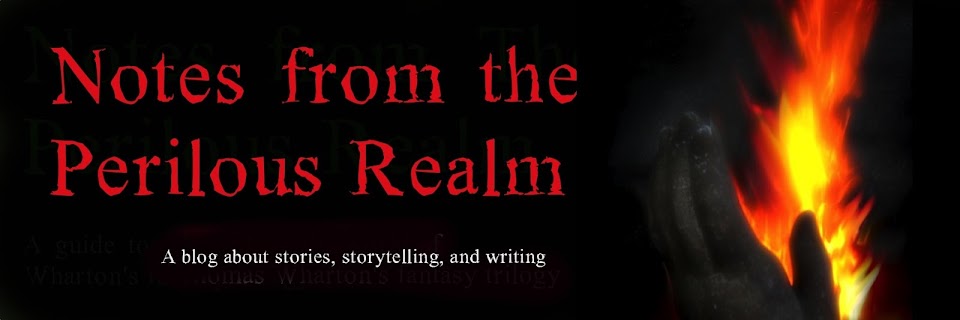30 Novels, day 18: A Life-Long Adventure
Guest post by Bill Thompson
As a kid, I was never much of a reader. I
looked at my dad’s newspapers, the covers of my mom’s novels, and I flipped
through the pictures in the National Geographic. In grade five, we had a series
in our class that was supposed to help with reading comprehension. I was put in
the orange readers, halfway between the books for dummies and those for the average
kids in the class.
The summer after grade five I was blinded in a
car accident. I spent four months in hospital because of a badly broken leg. My
world had changed. Apart from trying to adjust to being blind after eleven
years of running, biking, and rough-housing, the unspeakable boredom of the
hospital bed nearly drove me crazy.
One day two women from the school board came to
visit me. They brought me an oversized, open-reel tape recorder and some
recorded books. One of those books was J. R. R. Tolkien’s The Hobbit.
The world of The Hobbit was the world as I had
never imagined it. I had thought elves were diminutive shoemakers, while dwarfs
were funny little characters with funnier names who helped runaway princesses.
In Tolkien’s world, the dwarves--not dwarfs--still
had funny names, but they went on quests to steal back dragon-guarded treasure,
while elves were tall, beautiful, and a little threatening. And what was a
hobbit?
After the traction came off my leg, they put me
in a body cast: three months flat on my back, and I was finally able to get up.
One night after the nurses had done their rounds, I maneuvered myself out of
bed, and hobbled and cruched my way down the hall to the schoolroom, the room
for all the kids who were too damaged or messed up to go into the regular hospital
classroom. In that room, at the root of a mountain, the strangest creature I
had ever met waited for me; for me and a little hobbit, who was lost, in the
dark, and all alone.
Meeting Bilbo, Gollum, and Smaug introduced me
to a world of books that became my lifeline and my world. It took the place of
the life I had lost, and it gave the visual center of my brain something to do.
I imagined myself into every book I read, sometimes scaring myself into nights
of wakefulness, as I did with H. G. Wells The Time Machine and later Bram
Stoker’s Dracula. I have been on that road ever since, and it all began at a
round, green door with a pipe-smoking hobbit named Bilbo Baggins, and an unexpected
adventure to lands faraway.
Bill Thompson is an Edmonton writer and teacher of English.














